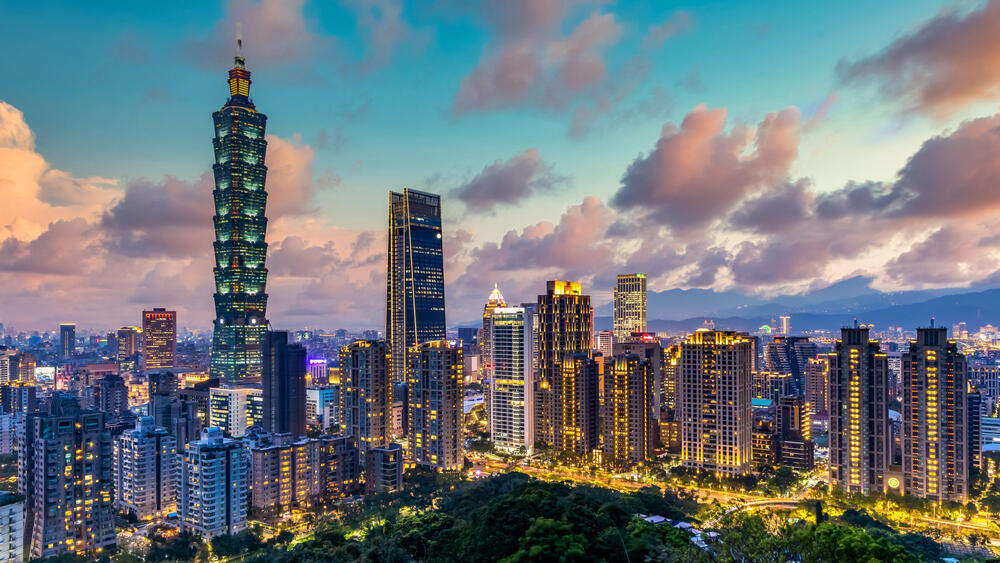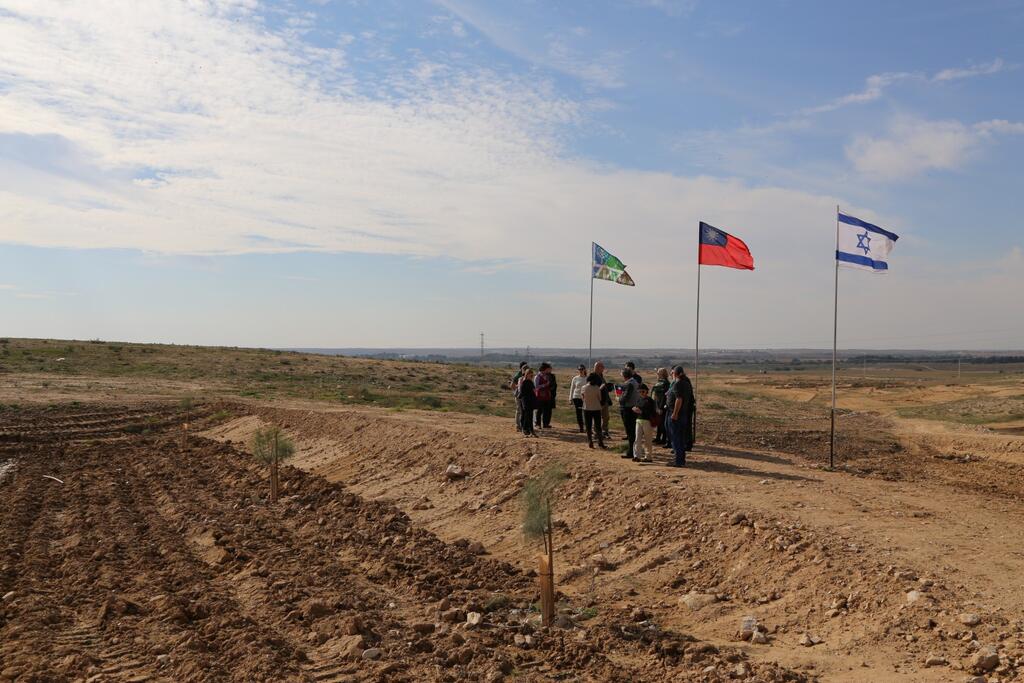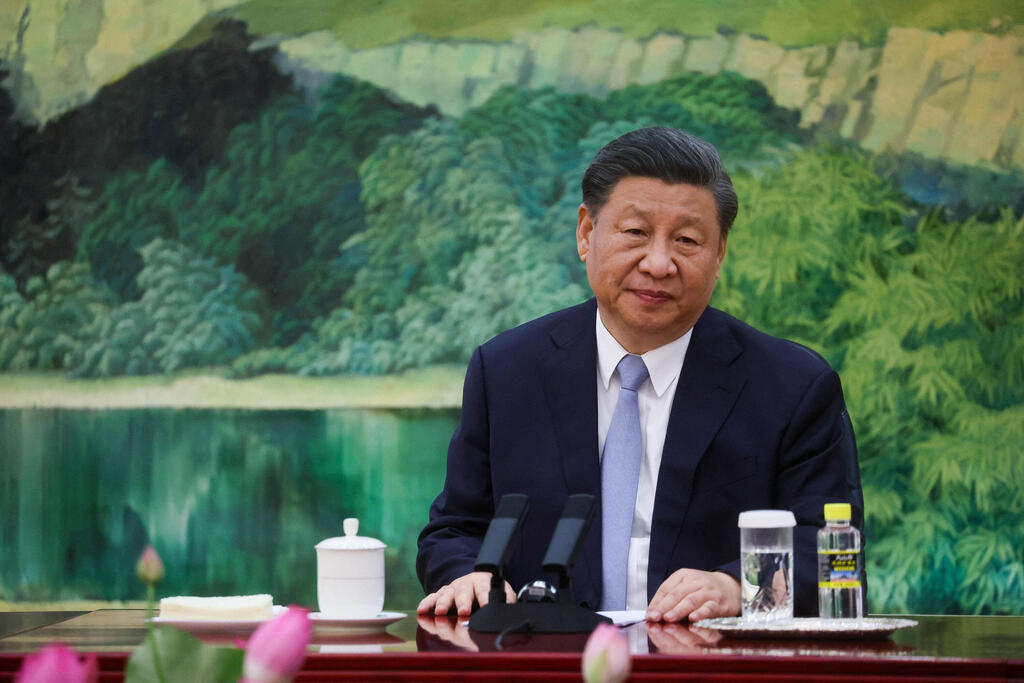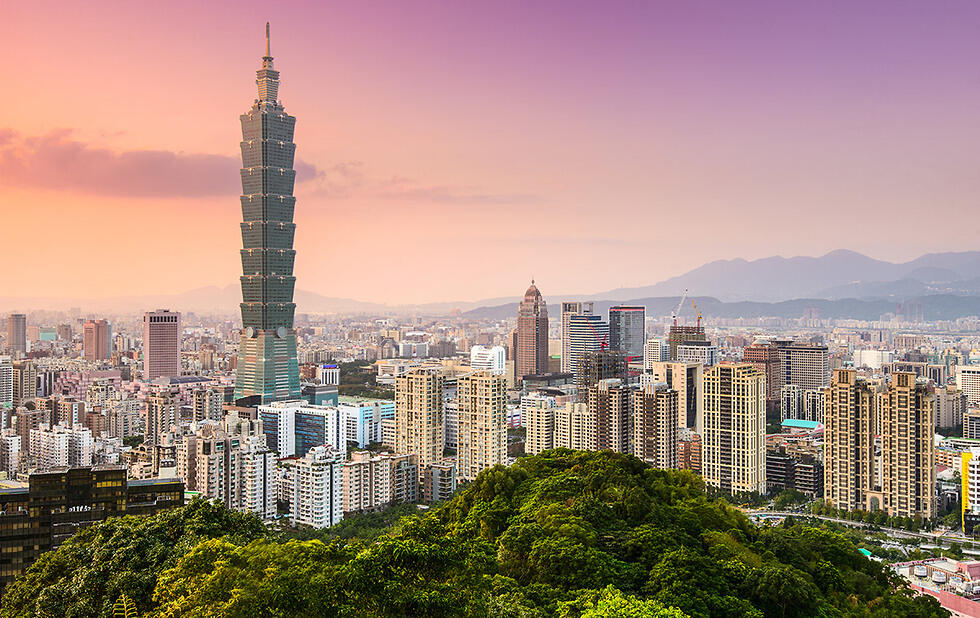Getting your Trinity Audio player ready...
Since before October 7, Chinese-Israeli relations have always been very ambiguous: from an economic point of view China is Israel's main trading partner in Asia, but from a political perspective, the Beijing government has strongly attacked the Israeli intervention in Gaza, as well as having hosted negotiations between Hamas and Fatah hoping for their possible reconciliation.
In spite of this, the Jewish State sent a parliamentary delegation to Taiwan, as well as signed a joint statement at the UN to condemn China for human rights violations against the Uyghurs.
Taiwan seems to have moved closer to Israel: after October 7, among the first world leaders to have condemned the Hamas attack were both then-Taiwanese president Tsai Ing-wen and the current president, Lai Ching-te. Meanwhile, Abby Lee, Taiwan's representative in Tel Aviv, even went to work as a volunteer in the agricultural fields and met the families of the hostages.
One of the main reasons for this proximity between Taipei and Jerusalem (although you can see pro-Palestinian demonstrations in Taiwan too) lies in the fact that just as the Israelis have had to defend themselves from hostile neighbors for decades, so the Taiwanese live with the constant fear of being invaded by China, which has never recognized the island's independence and hopes sooner or later to be able to take it back.
In order to understand how relations between the two countries have evolved and what could happen if Chinese threats were to become reality, we talked about it with Chris King: born and raised in China (the name is a pseudonym), where in 1989 he took part in the student protests against the regime crushed by the Tiananmen Square massacre, today he lives in the United States. Since 2020 he has been a senior researcher at MEMRI (Middle East Media Research Institute), where he is among the curators of the Chinese Media Studies Project.
What kind of relations there were between Taiwan and Israel before October 7?
"To answer this question, I think it is necessary to clarify the historical context of the development in tripartite relations between Israel, the Republic of China (as Taiwan calls itself) and the People's Republic of China.
"Before the October 7 massacre, the Taiwan government kept some distance from Israel. Although relations between the two countries were generally good, they lacked a strong bond and were largely influenced and limited by factors related to the CCP (Chinese Communist Party).
"As early as the beginning of March 1949, shortly after the birth of Israel, the government of the Republic of China officially recognized Israel. On January 9, 1950, on the basis of the principle of pragmatic diplomacy, the Israeli government officially recognized the newly formed People's Republic of China, becoming the first country in the Middle East to recognize the communist regime.
"At that time, the CCP regime, strongly influenced by the USSR, had a strong convergence with Soviet foreign policy. Because Israel was supported by the Soviet Union at the beginning of its foundation, the CCP recognized and welcomed the creation of Israel. After the War of Independence in 1949, relations between the USSR and Israel started to deteriorate, until diplomatic relations were interrupted. As a result, the People's Republic of China also stopped recognizing Israel and supported the Arab countries.
"Since then, although Israel has sought to establish formal diplomatic relations with the Chinese government, Beijing has long ignored it. For example, in 1955 the Israeli government sent a note to the Chinese Ministry of Foreign Affairs saying it was 'ready to establish diplomatic relations with China,' but the Chinese rejected the offer.
"At the same time, although relations between Israel and Beijing had been difficult for a long time, Israel had avoided open contacts with the Kuomintang regime in Taiwan for strategic reasons, and had not established diplomatic relations. Israel and the Republic of China in Taiwan didn’t establish diplomatic relations for their respective considerations: in addition to Israel's recognition of the People's Republic of China, Taiwan also adopted a position close to the Arabs and distant from Israel, based on the need to obtain the diplomatic support of Arab States and to compete with Beijing for international relations.
"From the 1970s onward, Israel and Taiwan have forged strong relationships in various fields such as missile technology, nuclear technology, aerospace, agriculture, investment and trade. But this relationship has remained cold and distant."
What changed since October 7, and during the ongoing war?
"As a Chinese proverb says, 'He who is a friend in need is truly a friend.' The Taiwan government was among the first to condemn Hamas after the October 7 massacre. This shows Israel who its true friends are. The closeness between the two countries, based on shared values in the Western democratic camp and the similar experience of threat from the dictatorial regimes that surround them, has grown rapidly. There are those who have argued that Israel and Taiwan share a deep bond: both firmly defend democracy and freedom, despite being surrounded by authoritarian neighbors.
What can you tell us, instead, about the relationship between Israel and China?
"In my opinion, Israel's friendly attitude toward Beijing in the past was initially based on the diplomatic principle of realism, but it was also dictated by gratitude to the Chinese government for extending a hand to Jews during World War II. The problem is that those who helped the Jews during the war were in the Kuomintang government in power in China at the time, and this government took refuge in Taiwan after 1949.
"China's aid to the Jews has nothing to do with the Chinese Communist Party. For example, the Taiwan government issued 'lifetime visas' to a large number of European Jews fleeing Nazi Germany. In addition, in 1939 the nationalist government of the Republic of China planned the establishment of a Jewish settlement in Tengchong, in the Yunnan Province. By contrast, Beijing has so far refrained from condemning Hamas after the October 7 massacre.
"I think Beijing's political orientation is rooted in its history, and is mainly aimed at the United States. At the time of Mao Zedong, in order to oppose so-called colonialism, he implemented a series of policies in the Middle East, supporting nationalist movements in the Arab world and in particular favoring the PLO (Palestine Liberation Organization), which was founded only in 1964, despite the fact that the concept of a Palestinian State did not exist at the time of Israel's birth.
"In 1965, PLO representatives visited Beijing. During the meeting, Mao compared Israel to Taiwan, saying that the two countries had been created by 'imperialism' to contain both the Arabs and the Chinese. From these words, it could already be seen that Beijing, for strategic and international political needs, considers Israel a hostile country like the United States.
"Although China has since improved relations with the United States and the West, establishing diplomatic relations with Israel in 1992, the inertia of its Middle East policy, vast ideological differences and the need to suppress radical Islamist forces at home have made it impossible for Beijing to side with Israel at critical moments. It is clear that this attitude is fundamentally driven by China's need to weaken the American influence in the Middle East."
Just like Israel, Taiwan has faced the stigma of countries denying its right to exist for decades. How did this affect their relationship?
"Actually, Taiwan's isolation and the indifference of the international community are much greater than those toward Israel. Founded on a similar destiny and shared values, Taiwanese society is full of admiration for Israel, and hopes to become the Israel of the East, to overcome its predicament, to avert the threat of authoritarian regimes, to defend its destiny and to protect its hard-won freedom and democracy.
"Israel has also received strong support from Taiwan in the wake of the October 7 massacre: Israel's de facto Ambassador to Taiwan, Maya Yaron, told reporters in Taipei that 'Taiwan is a true friend of Israel, and we really appreciate everything Taiwan has given us.' These common ties have led to a significant improvement in relations between the two countries."
Although China’s foreign policy is close to Iran and the Palestinians, economic trade with Israel has been very profitable for years. How do you explain this contradiction?
"As I said earlier, China's support for Palestine and its close relations with Iran are mainly motivated by the need to play a geopolitical role in opposition to the United States. Since the time of Mao, the Chinese government has tried to stand up to the Americans and gradually intervene in Middle Eastern affairs to strengthen its voice in the Middle East.
"Referring to the Beijing Declaration to end the division of Palestine and strengthen Palestinian national unity, signed at the end of July, I believe that Beijing wants to reconcile the two main Palestinian factions. However, this statement is more likely to strengthen Fatah's position and weaken Hamas' position. Beijing has maintained close ties with Fatah for a long time, tacitly accepting it as Palestine's legitimate representative. Although the CCP has not called Hamas a terrorist organization, its attitude toward them has been relatively cold and distrustful. Due to Beijing's need to counter terrorism and internal Islamic radicalism, this policy serves China to maintain good relations with the Arab and Islamic world.
"Xi Jinping, the current leader of the CCP, emulates Mao in many ways, but the two are fundamentally different. Xi is a realist, while Mao was an idealist and a fanatical thinker. I believe Xi has a clear understanding of Israel's political, technological and military strength. Although his regime always denounces Israel verbally, he is essentially putting on a show in front of the world, to appease the Arab countries. But behind the scenes, he does not dare to be too tough on Israel, even more so at a time when Beijing is eager to improve its relations with the United States and the West, not least because the Chinese economy is currently struggling."
In a recent analysis published on the MEMRI website, you said that Taiwan cannot defend itself militarily from China without American support. What lesson should the Taiwanese learn from the Israeli model?
"Taiwan would like to be a key ally of the United States as Israel is, but it has failed to achieve this goal. I think the reason for this is partly because Taiwan is facing a huge China, and the two sides have a wide gap, in military strength as in other areas.
"Taiwan should certainly follow the Israeli model and make sure that all the people are ready to fight united by a shared common solidarity. But what we have seen so far is that the Taiwanese have unrealistic hopes of being protected by the United States and its allies. Taiwan's current military service system can hardly guarantee that Taiwan will have enough soldiers in case a war starts.
The Israeli model is difficult to replicate in Taiwan, where most Taiwanese today are content with a life of little wealth and lack the military spirit of the Israelis. The Taiwanese military basically believes that as long as its own troops can delay the advance of the Chinese army, it can be considered a success, and the subsequent military confrontation could only count on U.S. intervention. In other words, I am not optimistic that the Taiwanese can learn to apply the Israeli model."
What kind of impact could the November elections have on American support for Taiwan?
"Some analysts believe that Beijing is closely watching the U.S. elections. If Trump is re-elected, the CCP may be planning to make a deal with him, because Trump is not interested in Taiwan; recently, he said in an interview that Taiwan should pay for American protection. During Trump's first term as president of the United States, I was worried that he might make economic deals with Beijing and leave Taiwan. Fortunately, a trade war broke out later between the United States and China, causing this scenario to not happen.
"Should the Democratic Party win the election, Xi has already started to prepare himself. At the end of October 2023, California Governor Gavin Newsom visited China and received an extraordinary welcome from Xi. It is clear that Beijing is trying to send a friendly signal to the rising star of the Democratic Party.
How likely is China to attempt to invade Taiwan in the short term? And what should the West do if that happens?
"It is never easy to make such predictions, because there are many variables. It also depends on whether or not Russia decides to support China militarily. But there is one constant: Xi Jinping will definitely try to take back Taiwan while in charge. I think that if the Taiwan authorities do not try to dismantle the status quo, war is unlikely to break out in one or two years. Underlying this judgment is the fact that Xi has made errors of judgment, starting with bad government at home during the COVID-19 pandemic that caused severe damage to the Chinese economy and postponed his plans for the annexation of Taiwan. It needs time for China to regain its forces and achieve a relative military advantage over the United States and its allies locally, and an overwhelming military advantage over Taiwan. Only when these conditions are met, Xi will be able to decide to conquer Taiwan through strength.
"I believe that the best option for the West is to prevent war, whether it is by integrating military coalitions or economic sanctions against China. Among these, the most effective means of controlling and curbing Xi's ambition to take over Taiwan is the economic one: in other words, firmly and gradually becoming independent from the Chinese economy. If this goes wrong, the CCP's grip on power in China could be shaken. Only in this way, Xi can give up the idea of taking over Taiwan."
- A previous version of this interview was published in Italian on August 6, 2024, in Milan-based Jewish magazine Mosaico.






